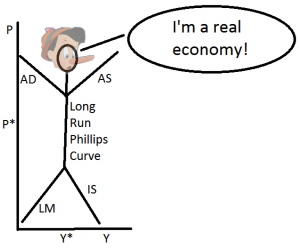This is my second column discussing Federal Reserve (Fed) regulation in the context of the question of who President Obama should appoint to be Ben Bernanke’s successor. This column focuses on the sudden discovery by economists (and, purportedly, Obama) that the Fed Chair’s most important function is to regulate. (If that sounds like common sense to you, (1) you are not an orthodox economist and (2) you do not understand the Fed’s culture.) This column begins the process of explaining why most of the economists and finance scholars (Robert Prasch is the exception) writing to urge that the new Fed Chair be chosen based on their regulatory skills demonstrate that they lack any understanding of the fundamentals of financial crises and supervision (and aiding prosecutions). This column begins my response to Amar Bhide’s op ed entitled “Wanted: A Boring Leader for the Fed.”
Bank Whistleblowers United
Posts Related to BWU
Recommended Reading
Subscribe
Articles Written By
Categories
Archives
Blogroll
- 3Spoken
- Angry Bear
- Bill Mitchell – billy blog
- Corrente
- Counterpunch: Tells the Facts, Names the Names
- Credit Writedowns
- Dollar Monopoly
- Econbrowser
- Economix
- Felix Salmon
- heteconomist.com
- interfluidity
- It's the People's Money
- Michael Hudson
- Mike Norman Economics
- Mish's Global Economic Trend Analysis
- MMT Bulgaria
- MMT In Canada
- Modern Money Mechanics
- Naked Capitalism
- Nouriel Roubini's Global EconoMonitor
- Paul Kedrosky's Infectious Greed
- Paul Krugman
- rete mmt
- The Big Picture
- The Center of the Universe
- The Future of Finance
- Un Cafelito a las Once
- Winterspeak
Resources
Useful Links
- Bureau of Economic Analysis
- Center on Budget and Policy Priorities
- Central Bank Research Hub, BIS
- Economic Indicators Calendar
- FedViews
- Financial Market Indices
- Fiscal Sustainability Teach-In
- FRASER
- How Economic Inequality Harms Societies
- International Post Keynesian Conference
- Izabella Kaminska @ FT Alphaville
- NBER Information on Recessions and Recoveries
- NBER: Economic Indicators and Releases
- Recovery.gov
- The Centre of Full Employment and Equity
- The Congressional Budget Office
- The Global Macro Edge
- USA Spending
-












